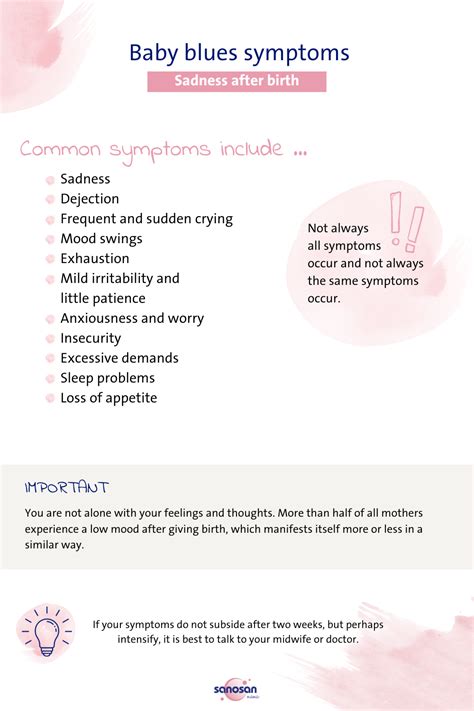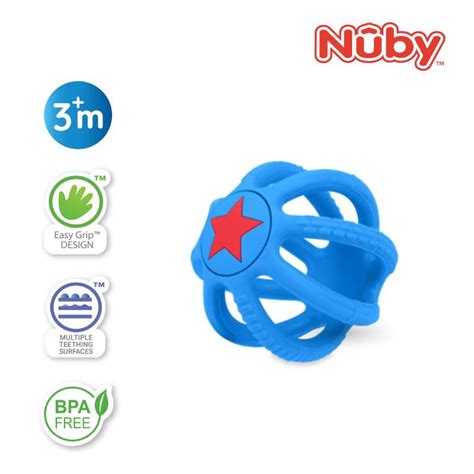Intro
Discover the meaning of Baby Blues, a common postpartum condition causing mood swings, anxiety, and depression in new mothers, exploring its symptoms, causes, and treatment options for a healthy recovery.
The term "baby blues" is often used to describe the emotional state of new mothers after giving birth. It's a common phenomenon that affects many women, but its meaning and implications are not always well understood. In this article, we'll delve into the world of baby blues, exploring its definition, causes, symptoms, and effects on new mothers. Whether you're a soon-to-be mom or a concerned partner, this information will help you better understand and navigate this critical period.
The arrival of a newborn baby is a life-changing event that brings immense joy and excitement to new parents. However, it can also be a time of significant emotional upheaval, particularly for mothers. The baby blues, also known as postpartum blues, refer to the feelings of sadness, anxiety, and emotional instability that many new mothers experience in the days and weeks following childbirth. These emotions can range from mild to severe and may be triggered by a combination of physical, hormonal, and psychological factors.
The baby blues are often seen as a normal part of the postpartum experience, but they can still have a profound impact on a new mother's mental and emotional well-being. It's essential to recognize the signs and symptoms of baby blues, as well as the differences between this condition and more severe postpartum disorders, such as postpartum depression (PPD) and postpartum anxiety (PPA). By understanding the causes, effects, and treatment options for baby blues, new mothers can better cope with their emotions and enjoy a healthier, happier postpartum experience.
What are the Baby Blues?

The baby blues are a common condition that affects up to 80% of new mothers. It's characterized by feelings of sadness, anxiety, and emotional instability, which can be triggered by the significant hormonal and physical changes that occur after childbirth. The symptoms of baby blues typically appear within the first few days of giving birth and can last for several weeks. While the exact causes of baby blues are still not fully understood, research suggests that they may be linked to the sudden drop in estrogen and progesterone levels after childbirth, as well as the physical and emotional exhaustion that often accompanies new motherhood.
Causes of Baby Blues
The causes of baby blues are complex and multifaceted. Some of the key factors that contribute to this condition include: * Hormonal changes: The sudden drop in estrogen and progesterone levels after childbirth can lead to feelings of sadness and emotional instability. * Physical exhaustion: The physical demands of childbirth and caring for a new baby can leave new mothers feeling tired, weak, and vulnerable. * Emotional overload: The arrival of a new baby can be a significant emotional event, triggering feelings of anxiety, fear, and uncertainty. * Lack of support: New mothers who lack a strong support system, including partners, family, and friends, may be more susceptible to baby blues. * History of depression or anxiety: Women who have a history of depression or anxiety may be more likely to experience baby blues or more severe postpartum disorders.Symptoms of Baby Blues

The symptoms of baby blues can vary from woman to woman, but common signs include:
- Feelings of sadness, anxiety, and emotional instability
- Mood swings and irritability
- Crying spells and emotional reactivity
- Difficulty sleeping or insomnia
- Loss of appetite or interest in activities
- Feelings of guilt, shame, or inadequacy
- Difficulty bonding with the baby
It's essential to recognize that the symptoms of baby blues can be similar to those of more severe postpartum disorders, such as PPD and PPA. However, baby blues are typically milder and shorter-lived, resolving on their own within a few weeks.
Differences between Baby Blues and Postpartum Depression
While baby blues and postpartum depression (PPD) share some similar symptoms, they are distinct conditions with different causes, effects, and treatment options. Some key differences between baby blues and PPD include: * Duration: Baby blues typically last for a few weeks, while PPD can persist for months or even years. * Severity: PPD is a more severe condition, characterized by intense feelings of sadness, hopelessness, and despair. * Impact: PPD can significantly impair a woman's ability to care for herself and her baby, while baby blues may not have the same level of impact.Treatment Options for Baby Blues

While baby blues often resolve on their own, there are several treatment options that can help alleviate symptoms and support new mothers. These include:
- Social support: Having a strong support system, including partners, family, and friends, can make a significant difference in managing baby blues.
- Self-care: Engaging in self-care activities, such as exercise, meditation, and hobbies, can help reduce stress and promote emotional well-being.
- Counseling: Talking to a therapist or counselor can provide new mothers with a safe and supportive space to explore their emotions and develop coping strategies.
- Support groups: Joining a support group, either online or in-person, can connect new mothers with others who are experiencing similar challenges and emotions.
Prevention Strategies
While it's not possible to completely prevent baby blues, there are several strategies that can reduce the risk of developing this condition. These include: * Building a strong support network before giving birth * Practicing self-care and stress-reducing activities during pregnancy and after childbirth * Staying connected with partners, family, and friends * Seeking professional help if symptoms persist or worsen over timeCoping with Baby Blues

Coping with baby blues requires a combination of self-care, social support, and professional help. Some effective coping strategies include:
- Prioritizing sleep and rest
- Engaging in physical activity, such as walking or yoga
- Practicing relaxation techniques, such as deep breathing or meditation
- Connecting with others, including partners, family, and friends
- Seeking professional help if symptoms persist or worsen over time
Supporting a Partner with Baby Blues
If your partner is experiencing baby blues, there are several ways you can offer support and help. These include: * Listening and validating their emotions * Helping with childcare and household responsibilities * Encouraging self-care and stress-reducing activities * Accompanying them to counseling or support groups * Being patient and understanding, as baby blues can be a challenging and emotional experienceConclusion and Next Steps

In conclusion, baby blues are a common and normal part of the postpartum experience. While they can be challenging and emotional, there are several treatment options and coping strategies that can help alleviate symptoms and support new mothers. If you or someone you know is experiencing baby blues, it's essential to seek help and support. Remember, you're not alone, and there are many resources available to help you navigate this critical period.
We invite you to share your thoughts and experiences with baby blues in the comments below. Have you or someone you know struggled with this condition? What coping strategies have you found most effective? By sharing your story, you can help raise awareness and support for new mothers who are navigating the challenges of baby blues.
What are the symptoms of baby blues?
+The symptoms of baby blues include feelings of sadness, anxiety, and emotional instability, as well as mood swings, irritability, and crying spells.
How long do baby blues last?
+Baby blues typically last for a few weeks, although they can persist for several months in some cases.
Can baby blues be prevented?
+While it's not possible to completely prevent baby blues, there are several strategies that can reduce the risk of developing this condition, such as building a strong support network, practicing self-care, and staying connected with others.
What's the difference between baby blues and postpartum depression?
+Baby blues and postpartum depression (PPD) are distinct conditions with different causes, effects, and treatment options. PPD is a more severe condition, characterized by intense feelings of sadness, hopelessness, and despair, and can persist for months or even years.
How can I support a partner with baby blues?
+You can support a partner with baby blues by listening and validating their emotions, helping with childcare and household responsibilities, and encouraging self-care and stress-reducing activities.
